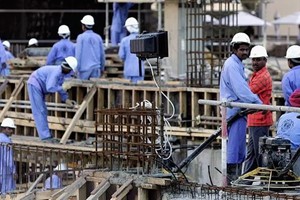In December, Copenhagen hosted the Nordic Sustainable Construction Symposium, bringing together industry leaders, politicians, and experts to address one of the most pressing challenges in the built environment: reducing the construction sector's impact on the climate and environment. The event marked the culmination of the Nordic Council of Ministers’ four-year programme dedicated to promoting sustainable construction and resource efficiency.
A Nordic Vision with European Impact
The Nordic Council of Ministers’ Vision 2030 aims to establish the Nordic Region as the world’s most sustainable and integrated region by the end of the decade. A key part of this vision is addressing the scarcity of resources, enhancing circularity, and optimizing the use of existing building stock. Nordic collaboration in sustainable construction is not only benefiting the region but has also influenced the European Commission’s efforts to transition the sector toward greener practices.
The impact of this Nordic initiative has resonated far beyond its borders. Over the past four years, the programme has provided valuable input into the European Commission’s work on sustainable construction. Ursula von der Leyen, President of the Commission, praised the initiative:
“Our built environment impacts our health, well-being and also our climate and environment. Innovation in materials, digitalization and circularity are crucial to improve the way we build. The collaboration, Nordic Sustainable Construction, is a great example of how to combine climate protection, innovation and competitiveness of our construction sector and how to implement the values of the new European Bauhaus: Sustainability, inclusiveness and beauty.”
A newly formed EU Commission has now taken charge, setting policies for the sector through 2029. In a significant move, former Danish climate minister Dan Jørgensen has been appointed as the first commissioner responsible for housing and energy. He highlighted the growing importance of Nordic expertise in shaping global sustainability efforts:
“I am pleased to note that Nordic co-operation on making the construction sector sustainable strengthens the region and that our experience and analyses are sought after in the EU and the rest of the world. Inspiring each other and sharing effective solutions are more important than ever.”
The Role of the Construction Sector in Sustainability
The construction industry plays a pivotal role in achieving climate goals, and the Nordic Council of Ministers has made it a priority area for action. Dan Koivulaakso, Head of the Department for Growth and Climate at the Nordic Council of Ministers, emphasized this in his keynote speech at the symposium:
“The Nordic Council of Ministers will develop and improve our work on climate adaptation and support solutions at the intersection of climate, biodiversity and pollution – the triple planetary crisis. The construction sector is a key area to address and all the work that has been accomplished in Nordic Sustainable Construction has already made an important contribution to this agenda.”
A Toolbox for Future-proof Construction
One of the most significant outcomes of the four-year programme is the creation of a 'toolbox' compiling key findings and strategies. This resource covers crucial topics such as harmonizing life cycle assessments across Nordic legislation, implementing circular business models, and promoting sustainable construction materials. It provides valuable insights for policymakers, businesses, and researchers seeking to drive the shift to low-emission, resource-efficient construction.
As the Nordic region continues to lead the way in sustainable building practices, its influence on European and global policies is growing. By sharing knowledge and developing innovative solutions, the Nordic countries are demonstrating how regional cooperation can accelerate the transition to a greener future.













